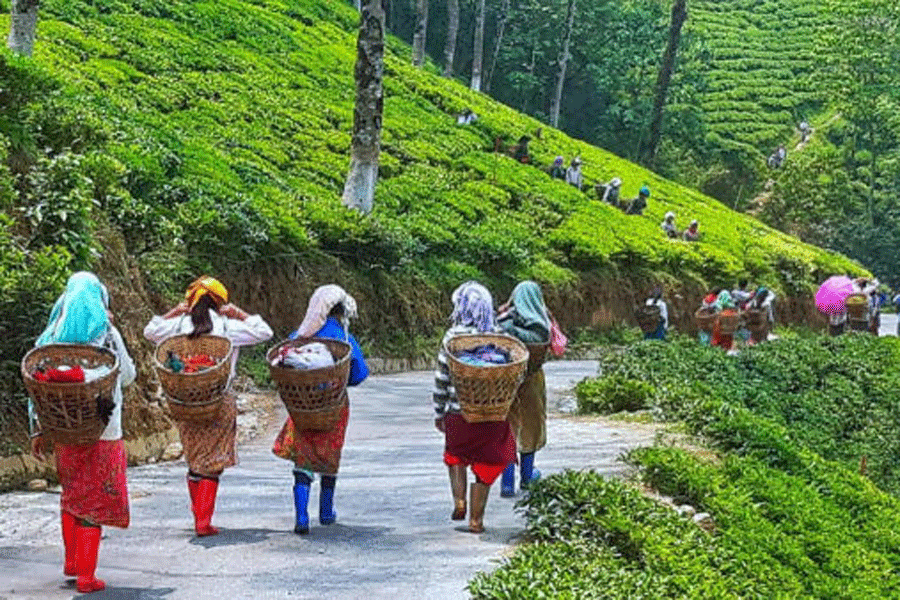Workers of seven tea estates in the Dooars have demanded early intervention by the Bengal labour department to expedite the reopening of the gardens.
Around 7,000 workers became jobless when the respective management closed down or abandoned the seven plantations. Disagreements between the management and the workers over the rate of the annual bonus led to the closure of most of the estates.
“Some other gardens had closed down for similar reasons but the state labour department intervened and managed to reopen them. The bonus was also paid to workers in these gardens. But seven tea estates remain closed. We didn’t receive the bonus and had to spend the festival days with empty hands,” said Raju Oraon, a senior worker of Bamandanga-Tondu, a garden which is in Nagrakata block of Jalpaiguri district.
“Now that the Puja days are over, the labour department and the district administration should see that our garden and the other six closed estates reopen. We should get the bonus at least before Divali,” he added.
The other six closed gardens are Samsing and Kathalguri in Jalpaiguri and Dalmore, Dalsingpara, Raimatang and Turturi in the neighbouring Alipurduar district.
A trade union leader based in the Dooars tea belt said some gardens were shut in in Darjeeling hills as well.
“However, the Gorkhaland Territorial Administration took the initiative to pay workers Rs 4,000 as assistance as they didn’t get the bonus. It helped the jobless workers in the hills ahead of the festivities. But in the Dooars, the workers of seven tea gardens didn’t get any such assistance,” said the leader.
This year, ahead of Puja, the north Bengal tea industry witnessed a series of closures on the bonus issue. Also, there had been differences of opinion among tea planters’ associations on bonus rates. While some of the associations decided to pay the bonus at 19 per cent, other associations held separate talks to finalise another rate. Further, in
the hills, the associations and the unions couldn’t reach a decision, which made the state government issue an advisory.
A senior planter in Siliguri said usually, the bonus rate was decided through industry-wide negotiations.
“But this year, the situation was completely different. The incapacity of a considerable number of tea estates to pay the bonus at higher rates indicated the financial distress of the industry. From November onwards, the yield in tea plantations will decline. There is an apprehension that some gardens might find it tough to clear the workers’ dues during the lean months as their earnings will stop,” he said.










